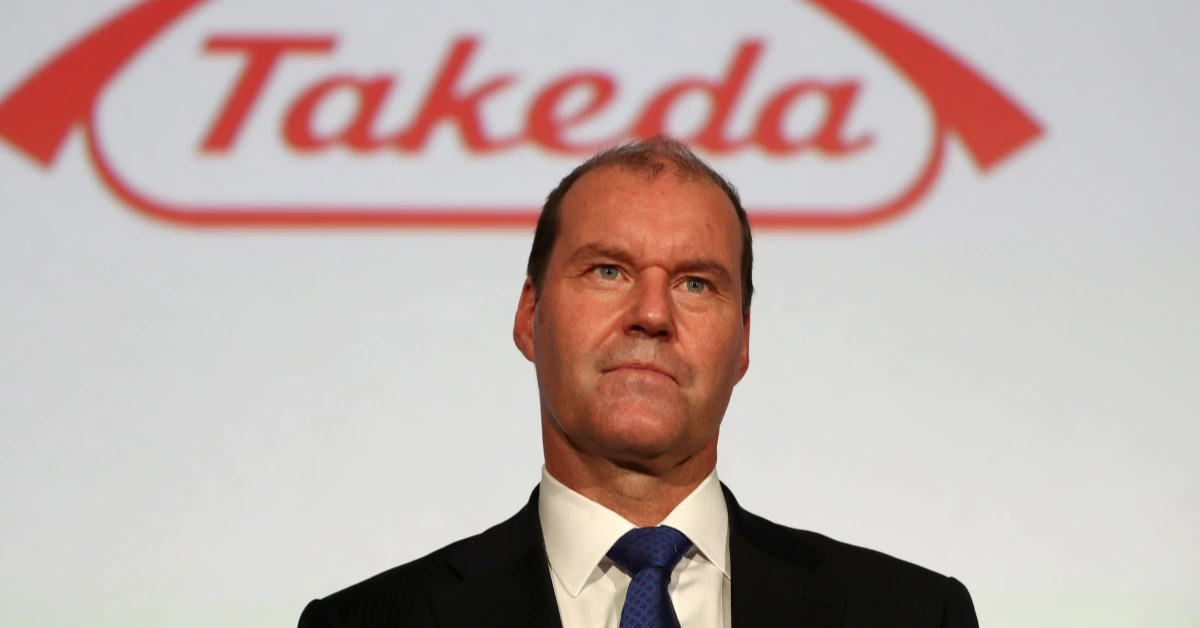
JAPAN – Christophe Weber, the long-serving CEO of Takeda, has announced his retirement plans for 2026 after 12 years at the Japanese pharmaceutical company.
Weber, who made history as the first non-Japanese leader of Takeda, will be succeeded by Julie Kim, currently leading Takeda’s US business unit.
Kim is set to be nominated as the new CEO at a shareholders’ meeting in June 2026, marking the official end of Weber’s leadership. After his retirement, Weber will no longer serve on the board.
During his time as CEO, Weber is credited with modernizing Takeda, particularly in its research and development (R&D) operations.
He streamlined R&D by consolidating it into one unified structure, focusing on six key therapeutic areas: gastrointestinal and inflammation, neuroscience, plasma-derived therapies, vaccines, cancer, and rare diseases.
This restructuring, alongside a sharp focus on innovative medicines, contributed to a significant increase in both R&D spending and annual sales.
Weber’s most notable move was the US $62 billion acquisition of UK-based Shire in 2019, which helped Takeda expand into the US and European markets while strengthening its position in rare diseases.
Despite mixed results from the deal, including a Reuters analysis suggesting limited value for shareholders, the acquisition was pivotal in Takeda’s global strategy.
Julie Kim, who has been with Takeda for several years, has a strong track record, particularly in leading the US business and the plasma-derived therapies division.
Takeda Chairman Masami Iijima described Kim as an “outstanding leader” and a “values-based” figure who will continue to uphold Takeda’s corporate culture while driving global patient impact.
Weber believes it is the right time for a leadership transition, citing the company’s strong growth outlook and upcoming product launches in late 2026. He expressed confidence in Kim’s appointment, calling her selection “outstanding.”
Under Weber’s leadership, Takeda’s drug pipeline has seen both successes and challenges. The company withdrew its lung cancer drug, Exkivity, after it failed to meet expectations in a confirmatory trial.
However, it gained approval for Eohilia, a groundbreaking oral treatment for eosinophilic oesophagitis (EoE), marking a significant achievement.
Kim will now oversee the rollout of Eohilia and other key launches like the colorectal cancer drug Fruzaqla and Adzynma for congenital thrombotic thrombocytopenic purpura (cTTP).
She will also lead Takeda’s efforts to bring late-stage candidates like oveporexton for narcolepsy and zasocitinib for psoriasis to market.
Takeda’s near-term pipeline includes promising candidates for conditions like polycythemia vera, with filing plans set for fiscal years 2025 and 2026.
XRP HEALTHCARE L.L.C | License Number: 2312867.01 | Dubai | © Copyright 2025 | All Rights Reserved